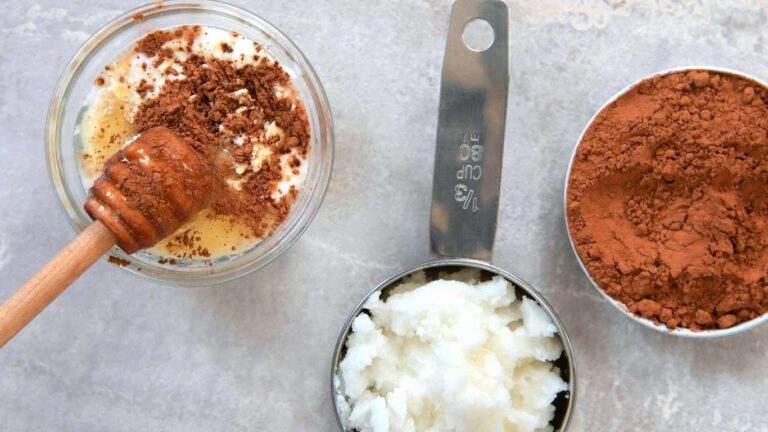10 Reasons Why (the Right Amount of) Coffee Is Good for You
Coffee is one of the world’s most popular beverages, and for good reason! While it often gets a bad rap for its caffeine content, studies show that drinking coffee in moderation offers a range of health benefits.
Here are 10 science-backed reasons why a moderate amount of coffee is good for your body and mind.

1. Boosts Physical Performance
Caffeine in coffee stimulates the release of adrenaline, the “fight-or-flight” hormone, which can enhance physical performance.
This is why many athletes drink coffee before workouts—it increases endurance and strength, allowing them to push harder.
Pro Tip: Try having a cup of black coffee about 30 minutes before a workout to maximize energy and endurance. I do this every time I go to the Gym and it’s cheap to do. No more pre-workout supplements!
2. Improves Mental Alertness and Focus
One of coffee’s most well-known benefits is its ability to improve focus and alertness. Caffeine blocks adenosine, a neurotransmitter that promotes sleep, which helps increase energy and mental clarity, especially during fatigue.
Quick Fact: Studies show that caffeine can improve reaction time, mood, and overall cognitive function.
3. May Reduce the Risk of Certain Cancers
Research has linked moderate coffee consumption with a lower risk of certain cancers, including liver and colorectal cancer.
Coffee contains antioxidants and other compounds that can help reduce inflammation, which plays a role in cancer development.
Key Insight: Drinking 3-4 cups of coffee a day has been associated with up to a 40% lower risk of liver cancer.
4. Supports Heart Health
Moderate coffee intake (about 1-3 cups per day) has been shown to lower the risk of heart disease.
Coffee’s caffeine and antioxidants improve blood circulation, protect blood vessels, and reduce inflammation.
Did You Know? Some studies suggest that coffee drinkers have a slightly lower risk of stroke than non-drinkers.
5. Lowers the Risk of Type 2 Diabetes
This study says that coffee drinkers have a lower risk of developing type 2 diabetes. This may be due to coffee’s ability to improve insulin sensitivity and reduce inflammation, helping to control blood sugar levels.
Both caffeinated and decaffeinated coffee have been associated with a lower risk of type 2 diabetes, so you can go for either one!
6. Protects the Liver
Drinking coffee can benefit your liver by lowering the risk of diseases like cirrhosis and fatty liver disease. The antioxidants in coffee protect liver cells and reduce liver enzyme levels, which are markers of liver health.
Fact: Studies have found that drinking 2-3 cups of coffee per day can reduce the risk of liver damage
7. Contains Essential Nutrients
Coffee contains several essential nutrients like riboflavin (Vitamin B2), magnesium, potassium, and niacin. These vitamins and minerals play an important role in energy production, muscle function, and overall wellness.
Fun Fact: One cup of coffee contains about 11% of your recommended daily intake of vitamin B2 (riboflavin).
8. May Protect Against Alzheimer’s and Dementia
Regular coffee consumption has been linked to a reduced risk of Alzheimer’s disease and other forms of dementia. The antioxidants and anti-inflammatory compounds in coffee protect the brain from oxidative stress, a factor in neurodegenerative diseases.
Insight: Some studies suggest that lifelong coffee consumption may reduce the risk of Alzheimer’s disease
9. Reduces Risk of Depression and Enhances Mood
Several studies have shown that moderate coffee consumption is associated with a lower risk of depression. Caffeine stimulates the central nervous system and increases the production of neurotransmitters like serotonin and dopamine, which are known to improve mood.
Takeaway: Drinking coffee in moderation can give you a natural mood boost and may lower the risk of developing depression.
10. Help in Weight Management
Caffeine can increase your metabolic rate, helping you burn more calories. Additionally, coffee suppresses appetite for a short period, which can aid in weight management when combined with a balanced diet and exercise.
Tip: If you’re trying to manage your weight, stick to black coffee or coffee with minimal additives like sugar and/or cream.
Related: Sugar-Free Starbucks Drinks: How to Order at Starbucks If You’re Looking to Reduce Sugar Intake
Conclusion
While coffee can provide numerous health benefits, it’s important to enjoy it in moderation. Excessive caffeine can lead to anxiety, restlessness, and disrupted sleep. However, if you stick to about 1-3 cups daily, you can safely enjoy coffee’s benefits without the downsides.
So go ahead, savor that cup of coffee, and toast to better health!
Sources
- Harvard T.H. Chan School of Public Health. “Coffee and Health.” Link
- National Institutes of Health (NIH). “Caffeine: How Does It Affect Health?” Link
- American Heart Association. “Is Coffee Good for You or Not?” Link
- World Cancer Research Fund. “Coffee and Cancer Prevention.” Link
- Mayo Clinic. “Does coffee offer health benefits?” Link
- American Diabetes Association. “Coffee and Diabetes.” Link







